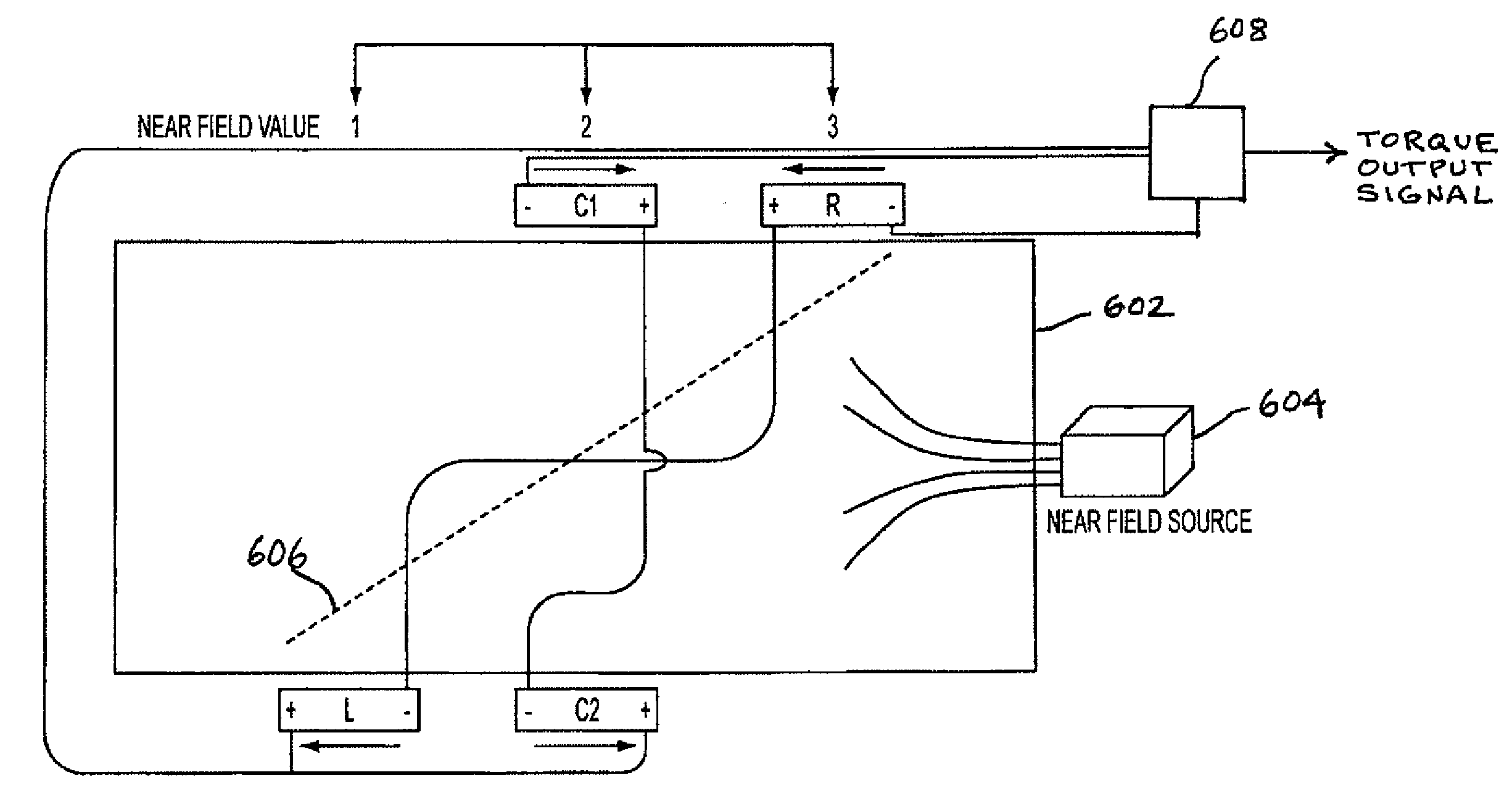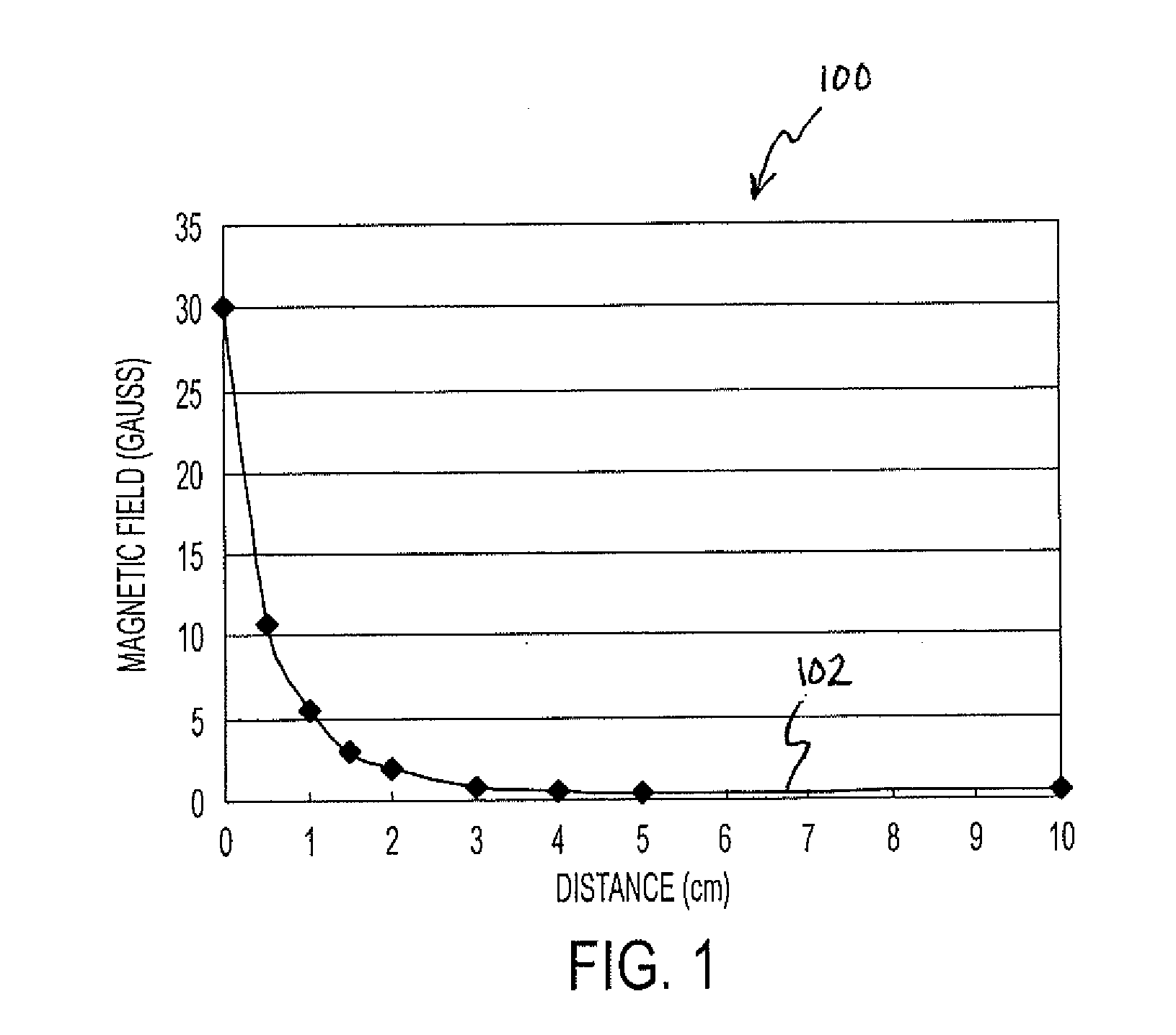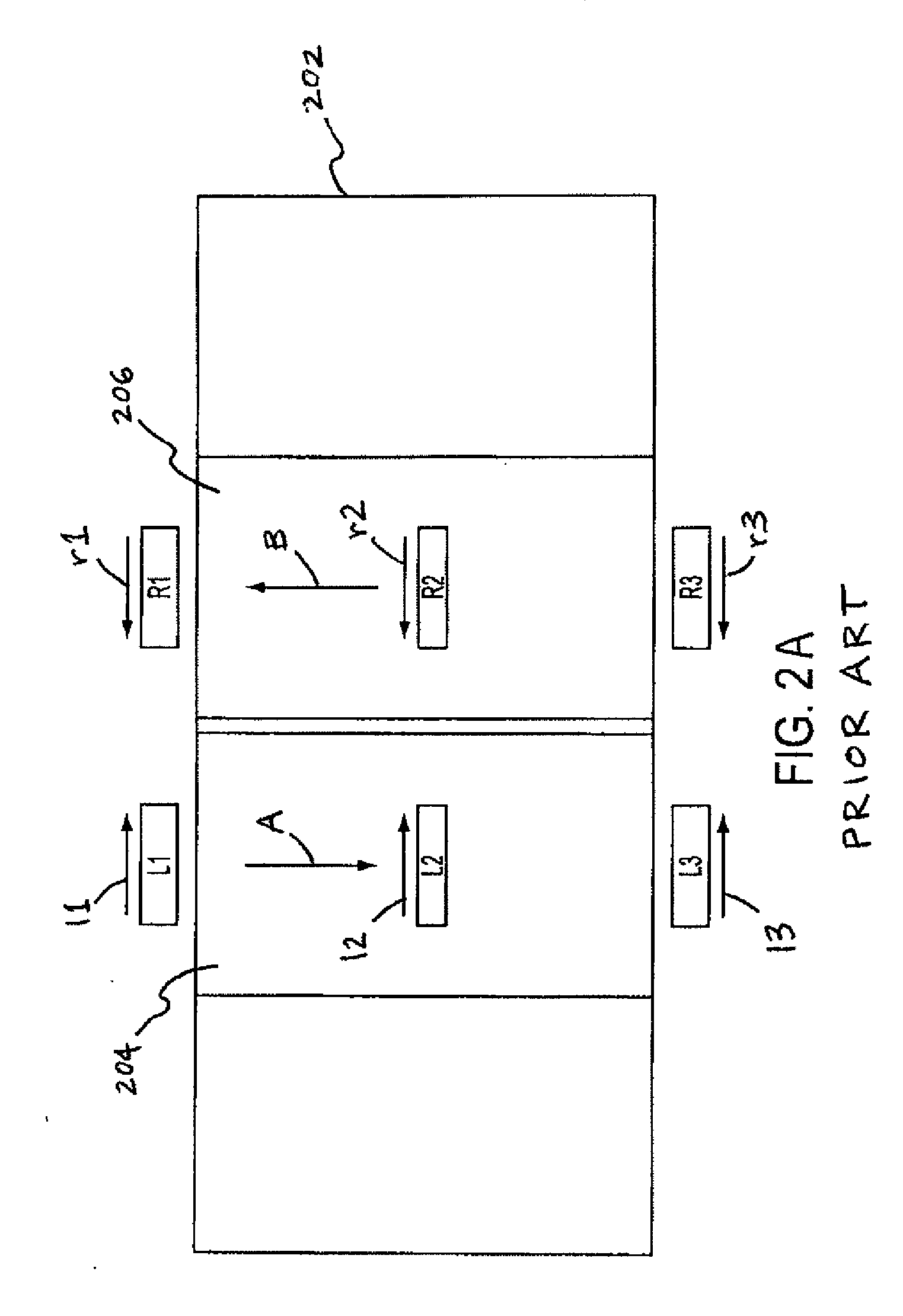Magnetoelastic torque sensor with ambient field rejection
a magnetic torque sensor and ambient field technology, applied in the field of magnetic field sensors, can solve the problems of sensor teaching, patent may be susceptible to other magnetic fields of exterior origin, and the configuration of the invention disclosed in the '059 patent is error-prone, so as to improve the uniformity of rotation signals
- Summary
- Abstract
- Description
- Claims
- Application Information
AI Technical Summary
Benefits of technology
Problems solved by technology
Method used
Image
Examples
Embodiment Construction
[0047]Several preferred embodiments of the invention are described for illustrative purposes, it being understood that the invention may be embodied in other forms not specifically shown in the drawings. The figures will be described with respect to the system structure and methods for using the system to achieve one or more of the objects of the invention and / or receive the benefits derived from the advantages of the invention as set forth above.
[0048]U.S. Pat. No. 5,520,059 describes a torque sensor having a transducer and magnetic field vector sensor. The torque sensor is mounted on a shaft which is part of a machine, and it rotates about a central longitudinal axis. A torque having a magnitude T is applied at one portion of the shaft and is transmitted thereby to another portion of the shaft where the motion of the shaft due to the torque T performs some useful work. The torque may be in a clockwise or counterclockwise direction when looking at the visible end of the shaft, but ...
PUM
| Property | Measurement | Unit |
|---|---|---|
| distance | aaaaa | aaaaa |
| torque | aaaaa | aaaaa |
| magnetic flux | aaaaa | aaaaa |
Abstract
Description
Claims
Application Information
 Login to View More
Login to View More - R&D
- Intellectual Property
- Life Sciences
- Materials
- Tech Scout
- Unparalleled Data Quality
- Higher Quality Content
- 60% Fewer Hallucinations
Browse by: Latest US Patents, China's latest patents, Technical Efficacy Thesaurus, Application Domain, Technology Topic, Popular Technical Reports.
© 2025 PatSnap. All rights reserved.Legal|Privacy policy|Modern Slavery Act Transparency Statement|Sitemap|About US| Contact US: help@patsnap.com



